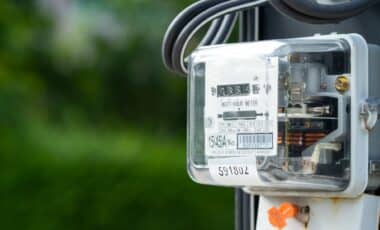The energy price cap, which limits the maximum price suppliers can charge for gas and electricity per unit, is set to increase by 1% in January 2025. This adjustment, announced by Ofgem, will see the average annual bill for a dual-fuel household rise to £1,738, up from the current £1,717. While the cap is designed to protect consumers from excessive charges, experts are urging households to focus on reducing energy usage as the actual cost of bills depends on individual consumption.
The rise, which coincides with Ofgem’s quarterly review of wholesale energy costs, has reignited discussions around energy efficiency and the role of renewable solutions in mitigating long-term costs.
Understanding the Energy Price Cap
The Ofgem price cap does not set a limit on total energy bills but instead restricts the amount suppliers can charge per unit of energy. This means households with higher consumption will pay more, while those using less energy can save. The cap also applies only to standard and default tariffs, excluding fixed-rate deals.
Andy Kerr, founder at BOXT, explains the significance of the cap:
“The Ofgem price cap sets the maximum suppliers can charge per unit of energy. Consumers should remember that the Ofgem price cap does not set the maximum a household will pay on their energy bills and need to remain vigilant about their usage to avoid receiving an unexpectedly costly bill.”
With the January increase and another 1% rise predicted for April 2025, households are being urged to monitor their consumption and take proactive steps to manage costs.
What Does This Mean for Your Bills?
While the price cap protects consumers from sharp increases in energy rates, the actual amount paid depends on several factors, including usage, payment methods, and meter types. For an average dual-fuel household, the January cap increase translates to an additional £21 annually. However, higher consumption or inefficient energy use could significantly raise this figure.
Here’s a breakdown of the expected average costs under the January 2025 price cap:
| Energy Type | Annual Cost (Average) |
|---|---|
| Electricity | £705 |
| Gas | £1,033 |
| Total (Dual-Fuel) | £1,738 |
These figures highlight the importance of energy-saving measures to offset rising costs, particularly during the colder months.
Steps to Reduce Energy Bills
Energy experts emphasise that while households cannot control wholesale market prices, they can take steps to reduce their overall energy usage. Proactive measures can improve efficiency and help mitigate the impact of rising costs.
Practical Tips for Reducing Energy Usage
- Install Thermostatic Radiator Valves: These allow room-specific temperature control, reducing unnecessary heating in unused spaces.
- Maintain Your Radiators: Bleeding radiators removes trapped air, improving heating efficiency.
- Improve Insulation: Use simple solutions like a £15 hot water cylinder jacket or invest in better wall and loft insulation.
- Monitor Appliance Usage: Turn off unused devices, and consider energy-efficient alternatives for high-consumption items.
- Maintain a Consistent Temperature: Keep heating at a minimum of 10°C during winter to prevent frozen pipes and conserve energy.
The Role of Renewable Energy
For long-term savings, households are encouraged to explore renewable solutions like heat pumps and solar panels. These technologies not only reduce dependency on traditional energy sources but also offer significant financial and environmental benefits.
Andy Kerr stresses the need for broader efforts to improve energy efficiency nationwide:
“Whilst there are steps consumers can take to monitor their consumption, the global cost of energy is beyond their control. Because of this, the UK needs to invest effort in helping consumers make their homes more energy efficient by investing more in sustainable energy sources.”
Benefits of Renewable Solutions
- Heat Pumps: With government grants of up to £7,500 available, heat pumps can deliver three times more heat energy than they consume, cutting bills and emissions.
- Solar Panels: Despite upfront costs, solar panels can save households up to £91 per month or £1,096 annually on electricity bills.
Kerr adds:
“Beyond the price cap, the Government needs to work towards improving the availability and affordability of alternative energy sources like heat pumps and solar panels to reduce households’ energy bills in the long term.”
Why Energy Efficiency Matters
The upcoming changes to the price cap highlight the need for consumers to adopt energy-efficient practices and explore sustainable alternatives. With energy prices likely to remain volatile, these measures are crucial for managing costs and ensuring households are less vulnerable to future price cap increases.
While the cap provides a degree of financial protection, it is not a solution to rising energy prices. As Kerr emphasises, a combination of consumer action and government investment is essential to create a more sustainable and affordable energy future.









